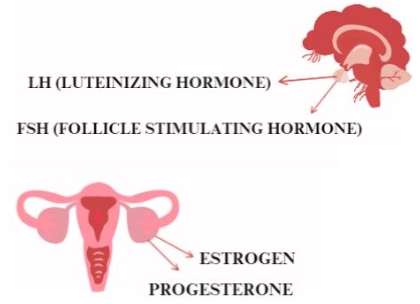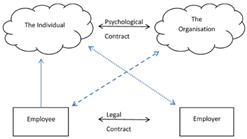Grief experiences among family caregivers after providing palliative end-of-life care
Abstract
This study explores the diverse experiences of family caregivers providing palliative end-of-life care, focusing on their coping strategies during caregiving and their grief responses post-caregiving. Analyzing demographic profiles, the study reveals that caregivers are predominantly women, spanning various ages, socio-economic backgrounds, and familial relationships. Caregiving durations and financial conditions also vary widely, highlighting the need for tailored support services. The thematic analysis identifies two major coping strategies: avoidance (including “Freeze” and “Flight”) and approach (including “Plan” and “Act”). Participants predominantly employed “Act” strategies, reflecting proactive engagement with caregiving challenges. Post-caregiving grief responses were categorized into four sub-themes: prolonged grief, anticipatory grief, irregular grief, and normal grief. The study underscores the necessity of personalized support programs that address both coping strategies during caregiving and diverse grief responses afterward. Recommendations include developing flexible support services that provide financial assistance, emotional support, and practical resources, as well as grief support tailored to different grief experiences. By aligning interventions with the varied needs of caregivers, practitioners can enhance support and improve caregivers’ overall well-being.
References
[1]Stajduhar KI, Funk L, Outcalt L. Family caregiver learning—how family caregivers learn to provide care at the end of life: A qualitative secondary analysis of four datasets. Palliative Medicine. 2013; 27(7): 657-664. doi: 10.1177/0269216313487765
[2]Tsai WI, Prigerson HG, Li CY, et al. Longitudinal changes and predictors of prolonged grief for bereaved family caregivers over the first 2 years after the terminally ill cancer patient’s death. Palliative Medicine. 2015; 30(5): 495-503. doi: 10.1177/0269216315603261
[3]Schutt KCH. Exploring How Family Members Experience Medical Assistance in Dying (MAiD) [PhD thesis]. Trinity Western University; 2020.
[4]Laperle P, Achille M, Ummel D. To Lose a Loved One by Medical Assistance in Dying or by Natural Death with Palliative Care: A Mixed Methods Comparison of Grief Experiences. OMEGA - Journal of Death and Dying. 2022; 89(3): 931-953. doi: 10.1177/00302228221085191
[5]Kristanti MS, Effendy C, Utarini A, et al. The experience of family caregivers of patients with cancer in an Asian country: A grounded theory approach. Palliative Medicine. 2019; 33(6): 676-684. doi: 10.1177/0269216319833260
[6]Wu MP, Huang SJ, Tsao LI. The Life Experiences Among Primary Family Caregivers of Home-Based Palliative Care. American Journal of Hospice and Palliative Medicine®. 2020; 37(10): 816-822. doi: 10.1177/1049909120907601
[7]Crawley S, Sampson EL, Moore KJ, et al. Grief in family carers of people living with dementia: A systematic review. International Psychogeriatrics. 2022; 35(9): 477-508. doi: 10.1017/s1041610221002787
[8]Holm M, Årestedt K, Alvariza A. Associations between Predeath and Postdeath Grief in Family Caregivers in Palliative Home Care. Journal of Palliative Medicine. 2019; 22(12): 1530-1535. doi: 10.1089/jpm.2019.0026
[9]Gardner DS, Kramer BJ. End-of-Life Concerns and Care Preferences: Congruence among Terminally Ill Elders and Their Family Caregivers. OMEGA - Journal of Death and Dying. 2010; 60(3): 273-297.
[10]Coelho A, Delalibera M, Barbosa A, et al. Prolonged Grief in Palliative Family Caregivers. OMEGA - Journal of Death and Dying. 2015; 72(2): 151-164. doi: 10.1177/0030222815574833
[11]Brown J. Bowen Family Systems Theory and Practice: Illustration and Critique. Australian and New Zealand Journal of Family Therapy. 1999; 20(2): 94-103.
[12]Kissane DW, Bloch S. Family Focused Grief Therapy: A Model of Family-Centered Care During Palliative Care and Bereavement. Open University Press; 2002.
[13]Walsh F, McGoldrick M (editors). Living Beyond Loss: Death in the Family. W. W. Norton & Company; 2004.
Copyright (c) 2023 Jay Errol V. Baral, Roselle Glenn R. Abergas, Jiah Kaye Bianca C. Namoro, Nixon Valroy G. Padilla, Lindsey Findley M. Parreño, Fiona Corinne Germino-Esteban, Mary Dana Kaye S. Soliven

This work is licensed under a Creative Commons Attribution 4.0 International License.









